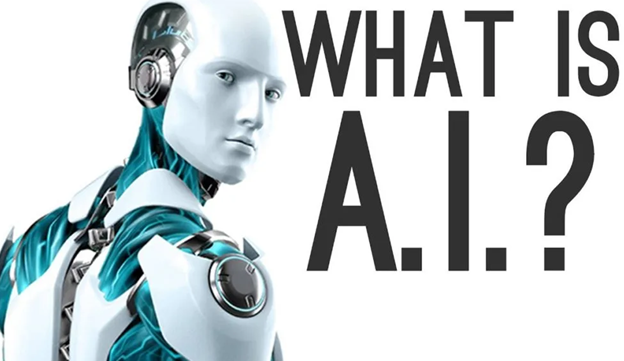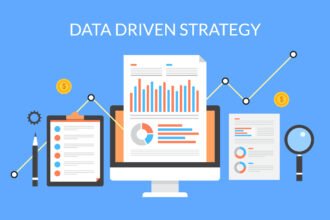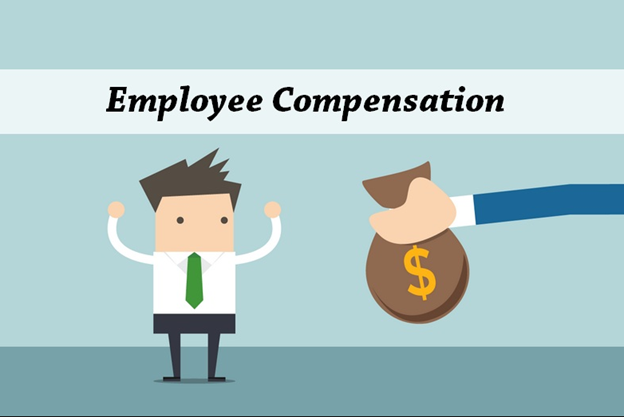As businesses strive to remain competitive in today’s economy, the question of how to best compensate employees becomes more important. Many companies are turning to artificial intelligence (AI) to help them create an ideal employee compensation package.
- What is AI?
- What is Employee Compensation?
- Introducing AI and Its Ability to Create Ideal Employee Compensation Packages
- The Factors That Go into an AI-created Package: Cost Per Hire, Skills, Experience, and Location
- Comparing The Traditional HR Process of Creating a Compensation Package to Using AI
- The Benefits of Using AI to Create Employee Compensation Packages
- How to Get Started with AI For Your Organization’s Employee Compensation Needs
AI can analyze data from a variety of sources to help businesses determine which benefits and salary levels will be most appealing to potential employees. In this blog post, we will discuss how AI is being used to create optimal employee compensation packages and the benefits this technology can offer your business.
The use of AI to create employee compensation packages is a relatively new practice, but one that is growing in popularity. By using data from a variety of sources, businesses can get a more holistic view of the market and what potential employees are looking for in a compensation package. This information can then be used to create customized packages that are designed to attract and retain the best talent.
But what is AI?
What is AI?
AI stands for artificial intelligence. It is the result of applying cognitive science techniques to artificially create something that performs tasks that only humans can perform.
Today, AI is used for tasks such as identifying objects in pictures or videos, translating languages and providing customer service. AI is also being used to develop self-driving cars and to create personalized recommendations (such as what music you might like).
There are different types of AI, including natural language processing and machine learning. Natural language processing is where a system understands human language and responds just like humans. Machine learning on the other hand is where the computer system can learn from its own data.
AI has been around for centuries, but it is only recently that it has started to become more mainstream. This is because of advances in computing power and data storage. It is also because of the increasing amount of data that is available.
Despite its long history, it only recently started to become more mainstream, and it has also entered into the recruitment and employee payment sector.
What is Employee Compensation?
Employee compensation is the total amount of money that a company pays to its employees in return for their work. It includes salaries, wages, bonuses, and benefits. Benefits can include health insurance, retirement plans, and paid time off.
In order to determine how much to compensate employees, companies must first assess what the job is worth to the company and then what similar jobs pay in the marketplace. The goal is to set compensation levels that are fair and competitive so that the company can attract and retain the best talent.
There are many factors to consider when designing a compensation plan, but some of the most important include:
- The cost of living in the area where the company is located
- The cost of labor in the industry
- The company’s budget
- The skills and experience of the employees
- The market value of the jobs
The most important factor in setting employee compensation is to make sure that it is fair and competitive. By doing so, companies can attract and retain the best talent. Other factors to consider include the cost of living and labor in the area, as well as the company’s budget. Employees’ skills and experience should also be taken into account when designing a compensation plan.
Finally, businesses must also look at the market value of similar jobs when determining how much to pay their employees.
Once the company has determined how much to pay employees, it must then decide how to structure the compensation.
Introducing AI and Its Ability to Create Ideal Employee Compensation Packages
The potential for AI in the world of employee compensation is vast. With its ability to analyze large data sets and identify patterns, AI can help employers create more customized and fair compensation packages for their employees.
AI can also help employers save time and money when it comes to creating these packages. By automating the process of analyzing data and identifying patterns, AI can help employers create compensation packages much faster than they could without it.
Overall, AI has the potential to revolutionize the way employers think about employee compensation. By making the process fairer, easier, and faster, AI can help employers create better working environments for their employees. And that’s something everyone can benefit from.
The Factors That Go into an AI-created Package: Cost Per Hire, Skills, Experience, and Location
When it comes to creating an AI-created package, there are a few key factors to consider. First, you’ll need to make sure that the AI has the potential to include all the necessary packages required for calculating compensation for employees.
Then, you’ll need to take into account how it will be implemented. And lastly, you’ll need to make sure that the AI is compatible with your company’s culture. By taking all of these factors into consideration, you can be sure that you’re creating a package that will help your company succeed.
An example of the packages that need to be taken into consideration is the cost per hire. The cost-per-hire metric plays a great role in knowing the cost the company can incur in recruiting the employees or filling an open position. It is important because it can help you determine whether your recruiting process is efficient and cost-effective and later makes your compensation judgment easier.
To calculate your cost per hire, simply divide the total cost of your recruiting efforts by the number of employees you hired. For example, if it cost you $5000 to fill four open positions, your cost per hire would be $1250 ($5000/4000).
Keep in mind that the cost per hire includes more than just the money you spend on advertising and job board postings. It also includes the salaries of your recruiters, any agency fees you pay,
Secondly, another factor that needs to be included in the AI is the skills, experience, and even location of the employees. These factors, as we are going to look at it in detail in this article, are important in calculating the overall compensation for each employee.
Comparing The Traditional HR Process of Creating a Compensation Package to Using AI
The traditional HR process of creating a compensation package is very time-consuming. It involves collecting data (skills, experience, location, and even cost per hire) from various sources, analyzing the data, and then making a decision on what the compensation package should be. This process can take weeks or even months to complete.
On the other hand, using AI to create a compensation package can be done in a matter of minutes. All you need to do is input the data into the AI system and it will analyze it and make a decision on what the compensation package should be. This is a much faster and more efficient way of creating a compensation package.
The Benefits of Using AI to Create Employee Compensation Packages
There are many benefits to using AI to create employee compensation packages. Perhaps the most obvious benefit is that it can help businesses save time and money. Rather than spending hours conducting research or surveys, businesses can simply let AI do the work for them. In addition, AI can help businesses stay up-to-date on changing market conditions and employee preferences.
Here are more benefits of using AI for this purpose in detail:
- You can use data from previous years to predict future trends in employee compensation. This means that you can be proactive in offering competitive salaries and benefits packages
- You can use AI to identify patterns in employee behavior. This information can be used to create targeted retention strategies
- AI can help you automate the process of creating and updating employee compensation packages. This saves time and ensures that your employees are always up-to-date on the latest changes
- You can use AI to create customized compensation packages for each employee. This ensures that each person is getting the specific benefits they need
- AI can help you identify which employees are most likely to leave your organization. This allows you to take steps to keep them happy and engaged with their work
- You can use AI to monitor changes in the labor market. This helps you ensure that your employees are always being paid a competitive wage
- AI can help you create a system that automatically adjusts employee compensation based on performance. This encourages employees to always be striving for excellence in their work.
These are just some of the benefits of using AI to create employee compensation packages. As you can see, there are many advantages to using this technology in your organization.
How to Get Started with AI For Your Organization’s Employee Compensation Needs
Here are four tips to get started with AI for your organization’s employee compensation needs:
- First, you need to identify what data you have available. This data will be used to train the AI system
- Next, you need to determine what objectives you want to achieve with AI. Once you have these two elements in place, you can begin training your AI system
- Finally, once your AI system is trained, you need to implement it into your organization’s compensation process
Conclusion
In conclusion, we believe that AI has the potential to help organizations create an ideal employee compensation package. While there is still some work to be done in this area, we are excited about the possibilities and look forward to seeing more advances in this field.











